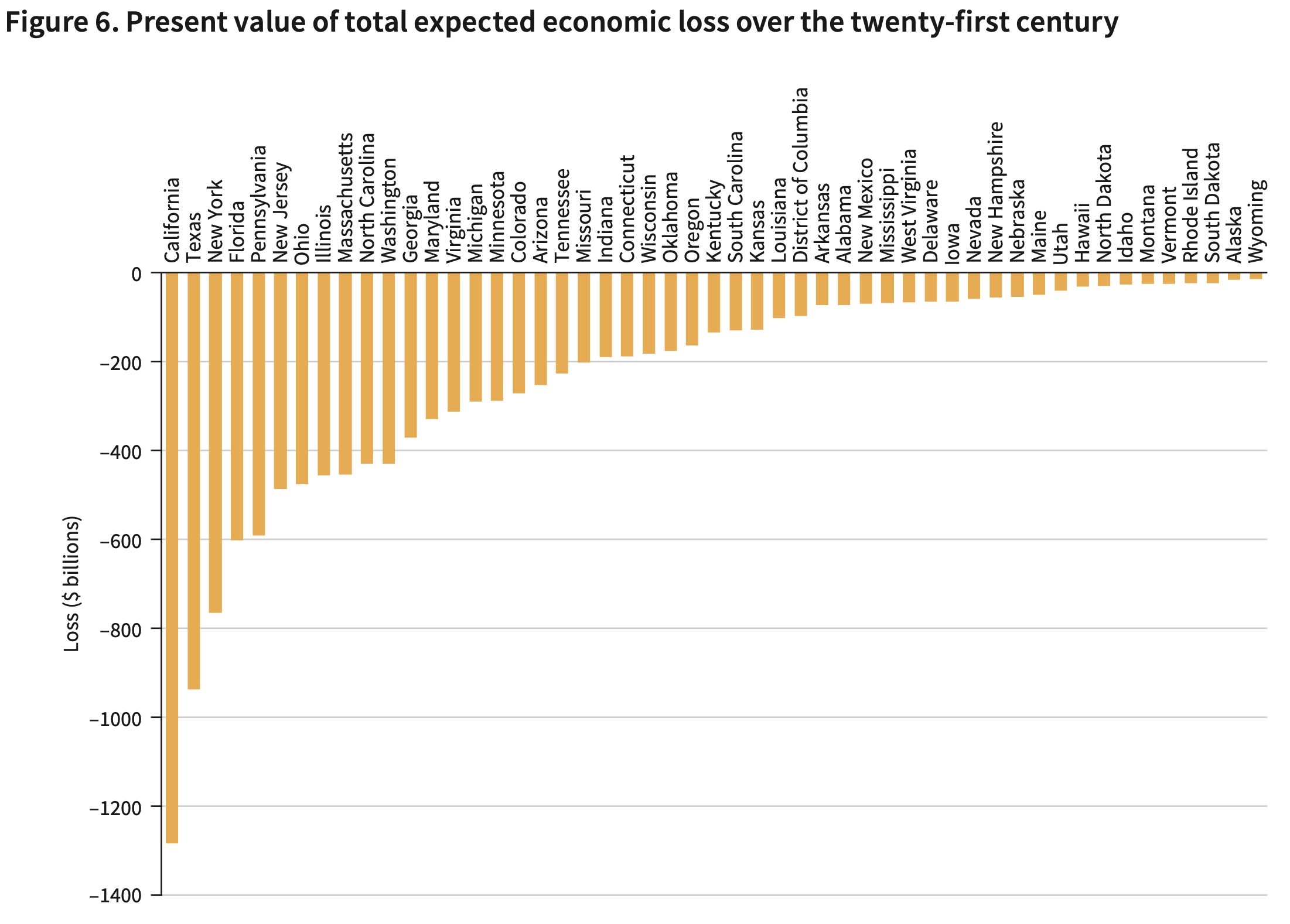
by James C. Sherlock
Over $312 billion in present value.
That is the estimate published by Stanford’s Eric A. Hanushek of expected economic losses attributable to Virginia’s pandemic school closures.
Virginia students in the COVID cohort can expect on average 5.5 percent lower lifetime earnings.
History indicates that the economic losses will be permanent unless the schools get better. Just returning schools to their pre-pandemic performance levels will not erase the lost learning.
Recovering from the pandemic requires swift and decisive improvements to the schools.
That number is an estimate, but a scientific one. Dr. Hanushek has better credentials with which to make that estimate than perhaps any other economist in the world.
For perspective, the $312 billion present value of projected losses to the Virginia economy due to COVID school shutdowns represents about seven years of state revenue realized from Virginia sources in the 2021 and 2022 biennium.
Even the money pales by comparison to the developmental and emotional damage done to the children.
But feel better.
His estimate of similar losses to California exceeds $1.2 trillion.
Dr. Hanushek is the Paul and Jean Hanna Senior Fellow at the Hoover Institution of Stanford University. He is internationally recognized for his economic analysis of educational issues, and his research has had broad influence on education policy in both developed and developing countries. He received the Yidan Prize for Education Research in 2021.
He has authored or edited twenty-four books along with over 250 articles. He completed his Ph.D. in economics at MIT.
He is a strong supporter of closing learning gaps in schools.
He predicted economic losses in September of 2020 if the schools remained closed. Now he measures them.
Shutdown effects. The arguments for and against school shutdowns were exhaustively proclaimed starting almost immediately.
In his broader nationwide assessment presented in the rest of this article, Dr. Hanushek notes that the longer each school division kept their schools closed, the more damage was done.
Dr. Hanushek projects the economic damages to states, but he did so by assessing two factors.
First, there is now consistent, state-by-state data on how learning patterns have changed.
Second, there is substantial economic analysis related to the US labor market that allows direct estimation of the impact of the pandemic.
His assessments are, considering the work presented and the qualifications of the analyst, compelling.
NAEP scores. One of his sources of data and of differentiations among states is NAEP reading and math losses between 2019 and 2022.
The NAEP samples are large enough that reliable results of these tests are available for all of the states plus the District of Columbia. NAEP tests were administered to 4th and 8th graders.
His analysis
considers just the eighth-grade performance. It does so because this performance links directly to the economic analyses that provide information on the future costs to individuals and the economy of the observed differences in student performance.
To paraphrase:
The average score for eighth-grade math fell for every state, with a national average decline of eight NAEP scale score points (see figure 1). This was enough to erase all of the gains that had occurred since 2000.
The losses in reading and math were correlated across states: states losing less in math also tended to lose less in reading (see figure 2).
There were exceptions. Washington, DC, New Jersey and Arizona students had relatively small learning losses in reading compared to large math losses.
He finds it also clear that
the magnitude of learning loss was essentially unrelated to the level of scores in 2019. As seen in figure 3, while some low-scoring states also had large losses (e.g., New Mexico and Washington, DC), Alabama had relatively less loss. However, the three highest-scoring states in 2019 (Massachusetts, New Jersey, and Minnesota) had some of the largest losses.
Dr. Hanushek notes that
Extensive research demonstrates a simple fact: those with higher achievement and greater cognitive skills earn more (Hanushek et al. 2015). The evidence suggests that the value of higher achievement persists across a student’s entire work life.
The United States rewards skills more than almost all other developed countries. The high value of skills in the US simply reflects the dynamic, technologically driven economy where workers are continually adjusting to new jobs and new ways of doing things (Hanushek et al. 2017).
But the equivalent way of viewing the high rewards of skills is that the United States punishes those without skills more than other countries. In other words, those with lower achievement see larger negative impacts on their lifetime earnings than found elsewhere.
The evidence on the labor market value of skills implies that the average student during the pandemic will have 5.6 percent lower lifetime earnings. Figure 4 compares the expected earnings given the eight-point loss in math achievement to what could have been expected without the pandemic.
The future-income impact of the pandemic also differs dramatically by which state the student was in during the pandemic. Figure 4 displays the percentage drop in income by state based on the varying learning losses seen in the NAEP scores. (These calculations consider just average state skill levels; they value skills the same across the country, reflecting the fact that many people move away from where they were educated.)
He notes that the average losses obscure large variations in losses to individuals. But that too hides bad news.
The existing data points to significantly larger impacts on disadvantaged students who tended to fare worse during the pandemic. The exact magnitude of this differential is, however, not known.
State-by-State Aggregate Impacts.
The author goes on to note that economic growth of states is highly dependent on the quality of the state’s labor force. And
The pandemic’s effects imply that the future workforce will be less prepared to contribute to economic growth. Even if education returns to its pre-pandemic quality, there is a cohort of students that will move through the future labor force with lower skills and achievement.
Figure 5 shows his estimate of GDP losses by states over the rest of this century.
He then calculates those losses as present total value of those losses. See figure 6 with which I opened this review.
Do These Losses Go Away? The calculations of economic costs assumed that all schools have returned to their January 2020 level of performance and that the NAEP losses measured in spring of 2022 are permanent.
He notes that some argue, however, that either kids are resilient enough or parents and schools will adjust to make up for those losses. He cautions that
The existing evidence, although largely international, suggests that just returning to the previous normal will leave the losses as permanent.
That evidence, of current interest, has been accumulated from long-term strikes by overseas teachers unions.
He also notes that research also shows that school breaks in the U.S. have a larger impact on math than reading — exactly what appears in the NAEP estimates of learning losses due to the pandemic.
Conclusions. He states that
There is overwhelming evidence that students in school during the closure period and during the subsequent adjustments to the pandemic are achieving at significantly lower levels than would have been expected without the pandemic.
He concludes the schools were not necessarily responsible for all the losses but that recovery from these losses necessarily falls on them. And that efforts to date won’t get it done.
If the schools are not made better, there will be continuing economic impacts as individuals and the nation will suffer from a society with lower skills. And, while some states have less learning loss to make up, none can avoid taking on the task of improving the schools.
Dr. Hanusek offers that
Without action, not only will individuals in the COVID cohort of students suffer long-term income losses, but also the individual states will see shrunken economic activity.
How to avoid the losses.
He does not in this essay make recommendations on how to improve the schools, but we can glean that from his massive contributions to existing research on that subject.
His just-released work with Danielle Handle U.S. SCHOOL FINANCE: RESOURCES AND OUTCOMES published by the National Bureau of Economic Research will prove foundational.
That article will appear in Eric A. Hanushek, Stephen Machin, and Ludger Woessmann, eds. forthcoming, 2023. Handbook of the Economics of Education. Vol. 7.
Progressives, led by teachers unions, will find much about which to disagree with Dr. Hanushek.
But they will need evidence, lacking at the level of his research, to contradict him effectively.
Endnote added Jan 2 at 16:55
Dr. Hanushek is acknowledged worldwide as expert in the economics of education.
The Yidan Prize Foundation is a $3.9 million education prize awarded to individuals whose work makes profound contributions to education research and development, with the ultimate aim of creating a better world through education.
The largest award prize in the field of education, the Yidan Prize is managed by an international judging committee and global advisory board formed by leading experts in education.
Dr. Hanushek won the Yidan Prize for Education Research in 2019.
I presented in Part 1 above his most up to date assessment of these particular costs.
In Part 2 of this series I will discuss the broader economic effects of school closures in addition to the estimates of personal income declines featured in this very small piece of Dr. Hanushek’s work.
Even in this small study, he stopped the assessment at the end of the 2021-22 school year by stipulating for analytical purposes that in following years schools would return to the efficiency and effectiveness they exhibited in 2019.
In Virginia we anticipate that unless major changes are made that is highly unlikely to happen.
Virginia schools deal with major teacher shortages that are projected to worsen at both the input and retirement ends and, as polled by JLARC, 56% of teachers reported that student behavior was a very serious problem. That speaks to school chaos.

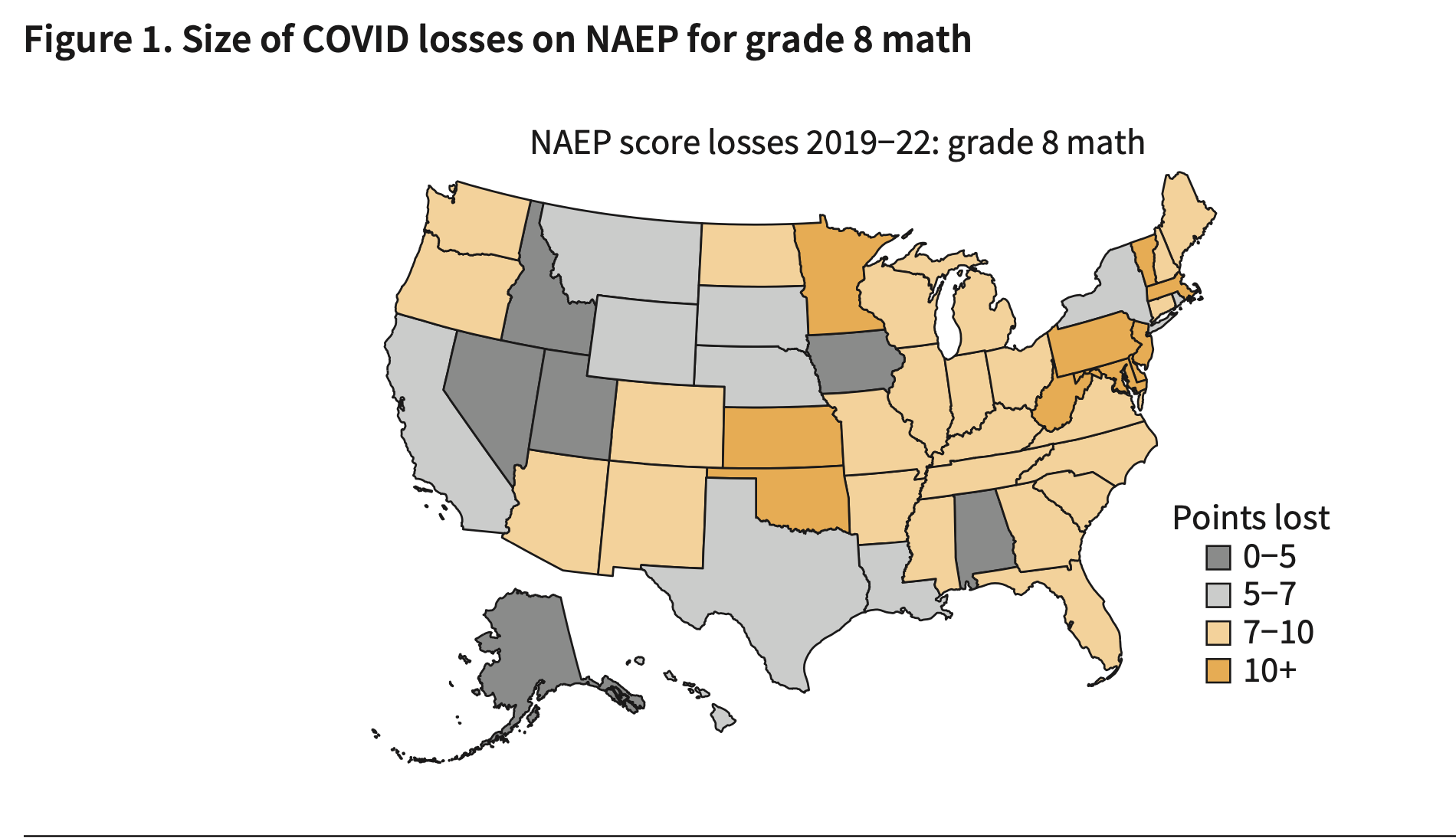
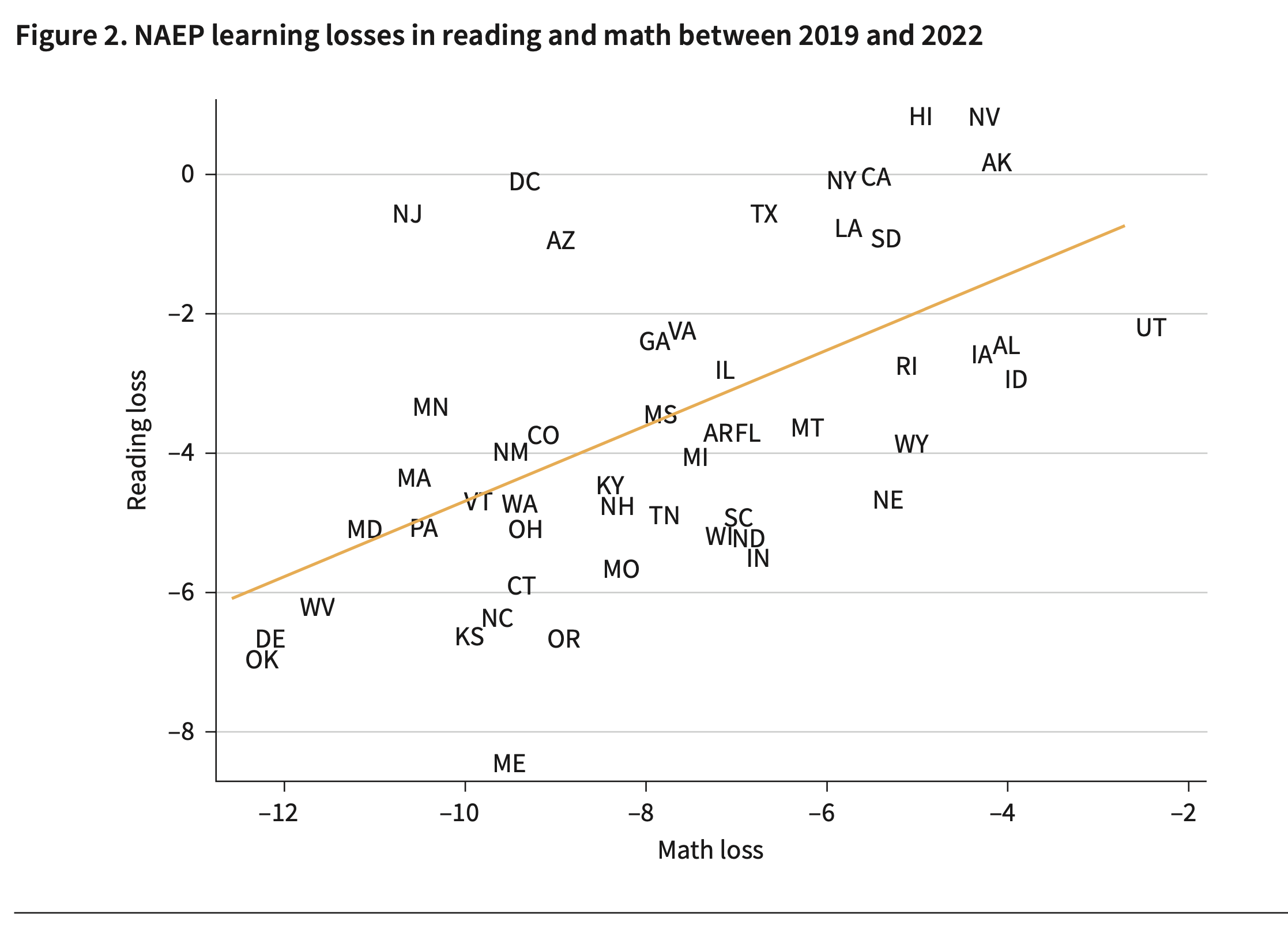
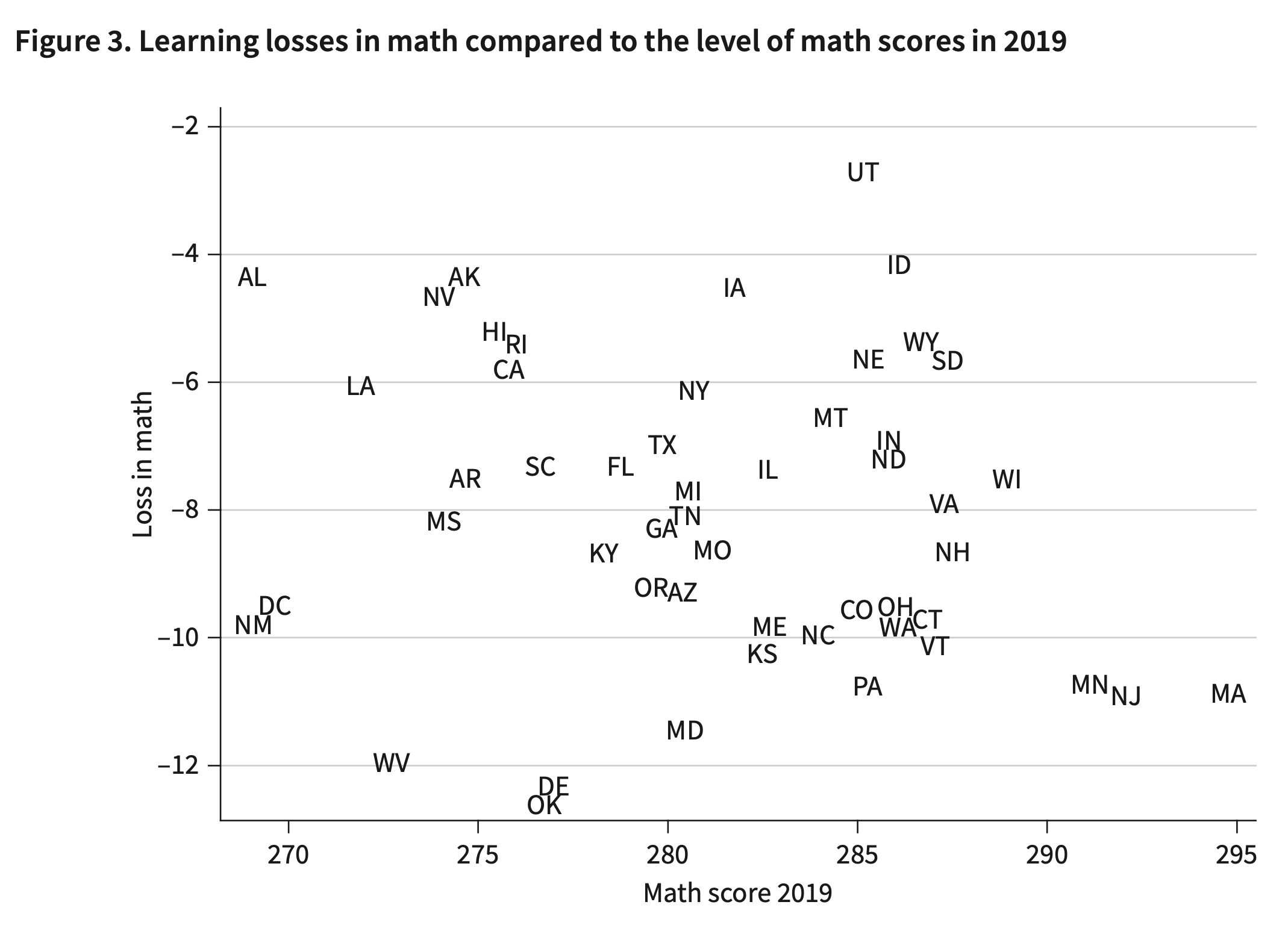
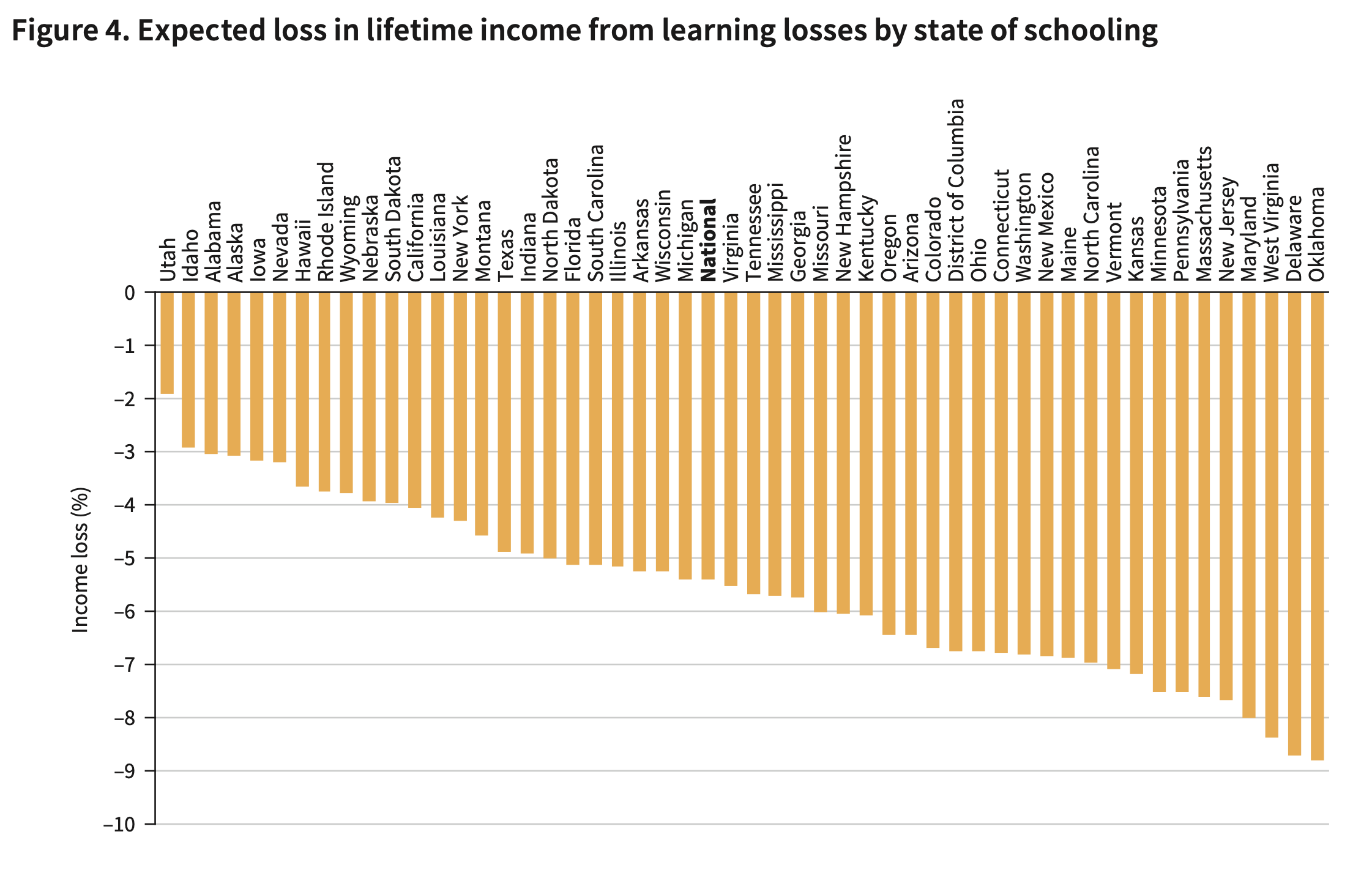
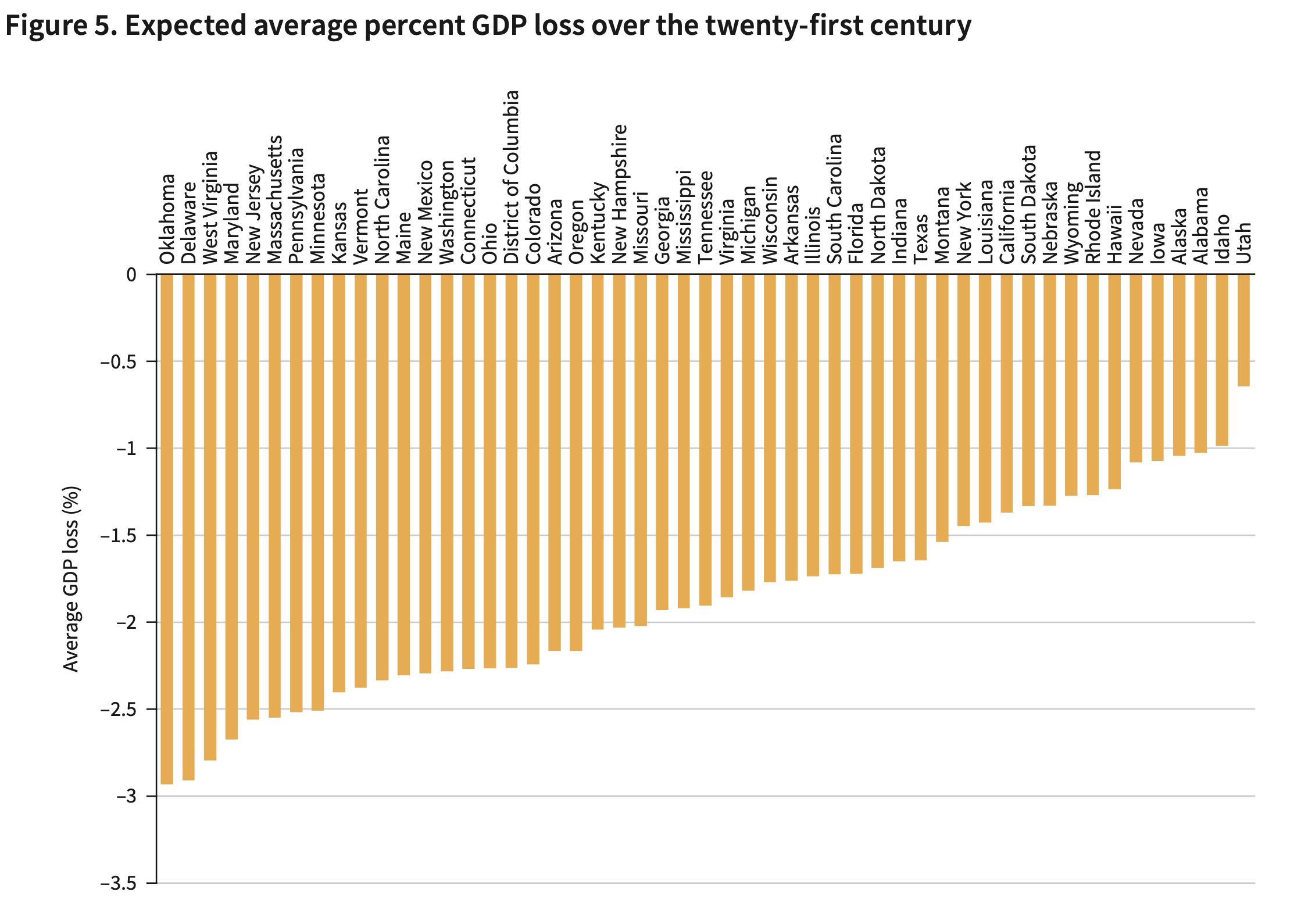
Leave a Reply
You must be logged in to post a comment.